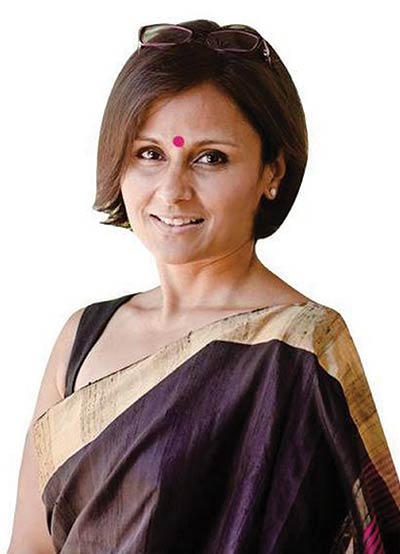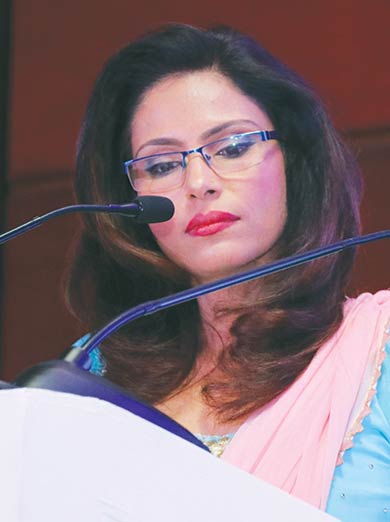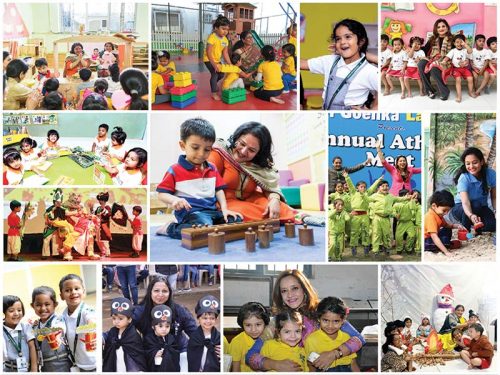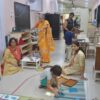Educationworld India Preschool Rankings 2018-19
Over the past three months, more than 100 field personnel of the Delhi-based market research and opinion polls company C fore interviewed 8,245 sample respondents including SEC (socio-economic category) ‘A’ parents, preschool principals and teachers to rate and rank proprietary and franchised pre-primaries separately in 16 cities countrywide – Dilip Thakore & Summiya Yasmeen

Nineteen years after the first issue of EducationWorld was launched with the noblest purpose of “building the pressure of public opinion to make education the #1 item on the national agenda,” this mission statement is nowhere near attainment. However, this publication can claim a substantial share of the credit for impacting the critical importance of QEFA (quality education for all) as the precondition of sustained national development on the collective public consciousness.
In particular, your editors take pride in having succeeded in impacting the vital importance of early childhood care and education (ECCE) upon the public. Prior to 2010 when we published the first league tables rating and ranking pre-primaries (aka preschools) in six major cities, there was minimal awareness about the critical importance of ECCE for nurturing and developing the country’s human capital and social significance of professionally administered early years education for children in the 0-5 age group.
Since then, the pioneer annual EducationWorld India Preschool Rankings have been followed up with the EducationWorld National Early Childhood Education Conference at which national and international ECCE experts and practitioners have delivered lectures and conducted teachers’ workshops and training sessions for hundreds of delegates comprising preschool promoters, principals and teachers from all over the country signing up for the EW National ECCE conferences. The end result of all this activity and impactment of ECCE on public consciousness is the emergence of the Mumbai-based Early Childhood Association of India (estb.2011) — a representative organisation of over 5,000 privately promoted preschools across the country — as a force to reckon with in pre-primary education policy formulation councils, professionalisation of early childhood education, a rising number of ECCE conventions and awards events and not least the Congress-led UPA government finalising a National Early Childhood Care and Education policy draft, which received cabinet approval at the fag end of its second term in office (2013).
Moreover, in its Samagra Shiksha (holistic education) scheme conceptualised as a programme to integrate school education holistically as a continuum from preschool to class XII education, the BJP-led NDA government at the Centre has accorded ECCE parity with primary and secondary schooling with the states assured of Central government support for their initiatives in public preschool education.
Indeed, it’s pertinent to note that until this publication took up and championed the cause of ECCE by commissioning its annual EW India Preschool surveys followed up with national ECCE conferences and workshops, pre-primary education was limited to provision of babysitting and crèche services for working mothers in which the emphasis was on nutrition and unstructured play for infants. This was especially true of the 1.4 million anganwadis, essentially nutrition centres for lactating mothers and newborns established — to her great credit — by prime minister Indira Gandhi in 1976 under the Centre’s Integrated Child Development Services (ICDS) programme, in which a poorly paid solitary anganwadi caretaker had — and continues to have — little time for dispensing more than cursory education to children in the 0-5 age group.
The critical importance of ECCE as the foundation block of education and consequently human capital development was impacted upon EducationWorld in 2005 following a chance meeting of your editor with Lowell Milken, co-chairman of the Los Angeles-based Knowldege Universe LLC, which owns the over 2,500-strong chain of Kinder Care pre-primaries in the US. Moreover according to Dr. James Heckman, professor of economics at the University of Chicago and winner of the Nobel Prize for economics in 2007, every dollar spent per child in early childhood care and education is worth several spent on her school or university education. “Early learning begets later learning and early success breeds later success, just as early failure breeds later failure,” said Heckman, basing his observation on several authoritative neuroscience studies conducted in the 1990s and the new millennium, which have conclusively established that children’s brains are almost fully developed by age eight.
 Since then, this pioneer education newsmagazine has vigorously advocated professionally administered early years education. “Over the past few years, the annual EW India Preschool Rankings have become more rigorous with the great majority of parameter rankings reflecting ground realities in pre-primary education. Nevertheless, I doubt if your ratings and rankings influence parental choice of preschools for their children which are mostly influenced by logistical convenience and ease of access. Regrettably there is little awareness within parents, society and government of the critical importance of ECCE delivered by adequately trained professionals aware that children have a great opportunity to learn languages and communication skills which will stand them in good stead later in life. A great nationwide teacher training movement with heavy emphasis on training early childhood educators should be the top priority of national development. In particular, poor learning outcomes because of lack of adequately trained teachers in the country’s 1.4 million anganwadis represent lost opportunities on a massive scale,” says Kavita Sabharwal, an alumna of the Harvard Business School, who has promoted five upscale Neev preschools — three of whom are ranked among Bangalore’s Top 5 — with an aggregate enrolment of 600 children.
Since then, this pioneer education newsmagazine has vigorously advocated professionally administered early years education. “Over the past few years, the annual EW India Preschool Rankings have become more rigorous with the great majority of parameter rankings reflecting ground realities in pre-primary education. Nevertheless, I doubt if your ratings and rankings influence parental choice of preschools for their children which are mostly influenced by logistical convenience and ease of access. Regrettably there is little awareness within parents, society and government of the critical importance of ECCE delivered by adequately trained professionals aware that children have a great opportunity to learn languages and communication skills which will stand them in good stead later in life. A great nationwide teacher training movement with heavy emphasis on training early childhood educators should be the top priority of national development. In particular, poor learning outcomes because of lack of adequately trained teachers in the country’s 1.4 million anganwadis represent lost opportunities on a massive scale,” says Kavita Sabharwal, an alumna of the Harvard Business School, who has promoted five upscale Neev preschools — three of whom are ranked among Bangalore’s Top 5 — with an aggregate enrolment of 600 children.
 In the other hand, Swati Menon, a psychology graduate of Mumbai University and doctoral student at Walden University, USA and director of the Mumbai-based The Educator Development Academy (TEDA, estb.2017), is unambiguous that the annual EW India Preschool Rankings serve a very useful education and social purpose.
In the other hand, Swati Menon, a psychology graduate of Mumbai University and doctoral student at Walden University, USA and director of the Mumbai-based The Educator Development Academy (TEDA, estb.2017), is unambiguous that the annual EW India Preschool Rankings serve a very useful education and social purpose.
“Credible assessment surveys conducted by professionals in any field serve a useful purpose in the same way as a diagnostic report is useful for assessing the health of individuals. The annual EW India Preschool Rankings help young parents to choose most suitable pre-primaries for their children, and benefit teachers and preschool managements by prompting them to introspect on their strengths and weaknesses and improve their institutions. Thus all stakeholders derive useful benefits from such transparent and rigorously conducted surveys,” says Menon.
As usual, the EW India Preschool Rankings 2018-19 survey to rate and rank over 500 pre-primaries in 16 major cities countrywide, viz, Delhi, Mumbai, Chennai, Kolkata, Bangalore, Hyderabad, Pune, Ahmedabad, Gurgaon, Noida, Bhubaneswar, Chandigarh, Ghaziabad, Bhopal, Jaipur and Kochi, was conducted over a period of three months by the well-reputed, Delhi-based market research and opinion polls company Centre for Forecasting and Research (C fore). Over the past three months, more than 100 field personnel employed by C fore interviewed 8,245 sample respondents including SEC (socio-economic category) ‘A’ category parents with at least one child enrolled in a preschool, and preschool principals and teachers.
“Every respondent was shown a list of pre-selected preschools in her city and asked to rate schools that they were sufficiently aware of on a ten-point scale against ten parameters of early childhood education excellence. The parameters are competence of teachers, teacher welfare, infrastructure, individual attention to students, value for money, leadership/management quality, parental involvement, innovative teaching, safety and hygiene and special needs education. Schools assessed by less than 30 persons were not considered for ranking. The score awarded under each parameter by sample respondents was totaled to rank preschools in the selected 16 cities. All parameters are given equal weightage except ‘competence of teachers’ which is given double weight,” says Premchand Palety, an alum of the Punjab Engineering College and Fore School of Management, Delhi who after serving with the Operations Research Group (ORG) founded C fore in 2000. Among C fore’s clients: Nestle, Hindustan Times, Mint and the Congress party.
In the pages following, we present the EW India Preschool Rankings 2018-19 league tables featuring detailed ratings of the most well-reputed pre-primaries and ranking them inter se in 16 major cities countrywide. These league tables are useful not only to parents in search of the most suitable preschools for their infants, but also for preschool managements inasmuch as they offer a basis for comparison under each parameter and ideas for institutional improvement.
Moreover for the first time, we also present a Top 3 ranking of the best anganwadi centres in Mumbai, Delhi and Bangalore.
With Paromita Sengupta & Sruthy Susan Ullas (Bangalore); Hemalatha Raghupathi (Chennai) & Baishali Mukherjee (Kolkata)
Also read: EducationWorld Early Childhood Education National Conference 2019

















Add comment